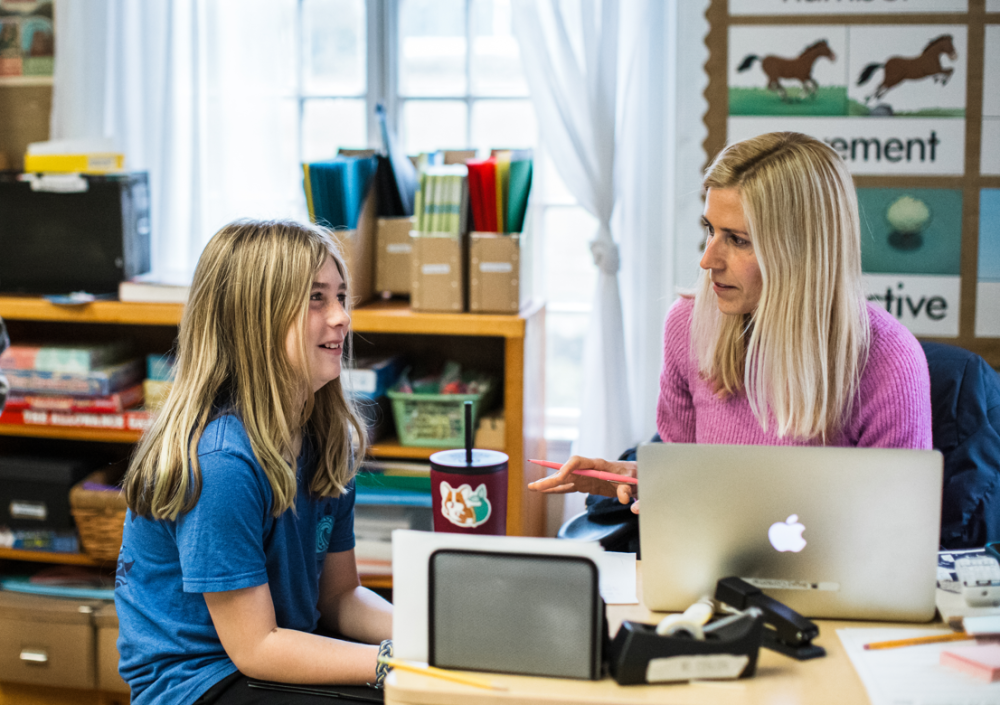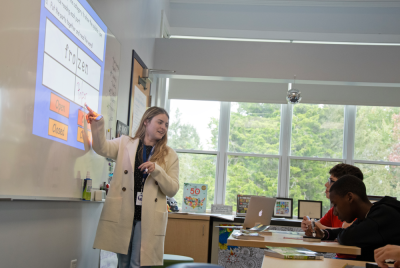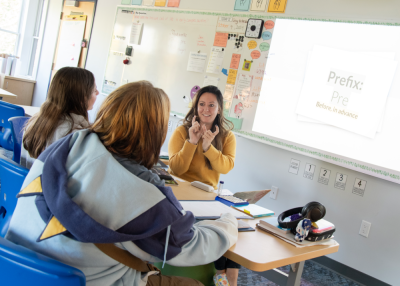Gaining confidence with dyslexia
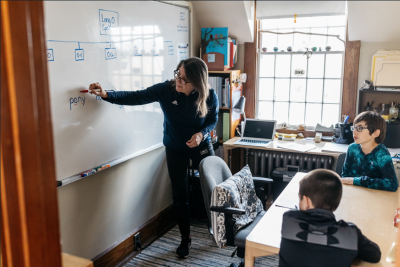
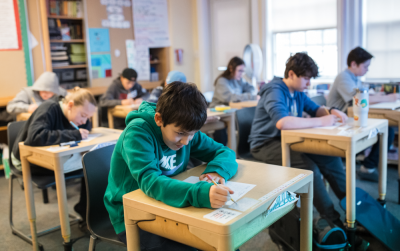
DARTMOUTH — When Mattapoisett’s Charlie Hall started the third grade, many of his peers had entered the phase of learning through reading while he was still just grasping learning to read, according to his mom, Megan Hall.
Born early, Charlie spent the first two years of his life in and out of hospitals. Though it was a challenging time, Hall said it got the family involved in early intervention from the start, which allowed him to get the resources he needed for his learning differences, including dyslexia, which affects a person’s ability to read.
“And even still, he was behind the curve,” Hall said. “Even though he was making minor progress, he was falling incrementally behind.”
After finishing the third grade, Charlie’s grades were “well below average,” which Hall said wouldn’t bother her so much as it does knowing it bothers her son.
“He was having such a difficult time, and he hated school, and as a teacher and as a parent, it just broke my heart,” she said.
That’s when Hall decided to enroll Charlie in Friends Academy in Dartmouth, where she now teaches. Though a private school, the academy accepts students who may have learning differences and provides a specialized program to help them. The Sally Borden Program, which is an integrated learning experience that serves students in grades three through eight who have language-based learning differences, was instituted 17 years ago.
With October being Dyslexia Awareness Month, Sally Borden Program Director Analise Brower said it's important for people to understand the prevalence of language-based learning differences, with approximately one in five people, or 20%, of the population having one.
Early intervention is key to helping those with language-based learning differences. Similar to public schools, at the start of every school year, academy students undergo literacy assessments to gauge where their strengths and vulnerabilities lie, Brower said. Students are assessed on a broad range of skills, including their ability to break down letters and sound, reading fluency, comprehension and vocabulary.
Since joining the Sally Borden Program and restarting the third grade, Hall said her son is not only showing progress, but he loves to be in school and has confidence in himself.
Just recently, Charlie played the drums in front of the entire school and “he was so proud of himself.”
Brower said dyslexia is not just the “letter reversals” that often come to mind and not understanding what is being read, but “it’s much much more complex than that.”
Often strong cognitive and creative thinkers, people with dyslexia are accustomed to using their brains in different ways that lend to these strengths, she said.
Hall said, “It's unbelievable to see the depth of their thinking,” adding how they just need the tools to navigate certain roadblocks.
Sally Borden Connect, an external program that started in 2018, also recognizes the prevalence of reading difficulties in students beyond the existing program and offers evaluations, tutoring, teacher training and more. Friends Academy additionally offers the Bridge Program for students in first and second grade, who have indicated a need for intervention.
Mattapoisett’s Meg and Mike duPont’s son Leo is a second grader in the Bridge Program, having moved from Newbury, Rhode Island to join Friends Academy.
Meg said it’s been “wonderful” to get the support and targeted focus necessary to meet her son’s specific needs.
Having searched for support for their son for some time, Meg added, “It feels almost magical from a parent perspective because they just seem to know what they're doing.”
With dyslexia being genetic, Meg, who has dyslexia herself, said she wasn’t surprised her son began to follow in her footsteps and kind of knew what to expect.
Mike pointed out that everyone’s journey with dyslexia is different and they are still in the early stages of Leo’s.
Meg said getting early intervention was important to her family “because all of the research and studies show that the sooner a child gets help, the sooner they overcome their learning difference.”
She added, “I would just encourage people to get their child or themselves tested if they have any thoughts or suspicions, because knowledge is power.”
Brower said the Sally Borden Program aims to support “students’ skill development and neurological strengthening and rewriting in all sorts of areas pertaining to literacy and executive functioning.”
The intent of intervention isn’t to “cure” someone with a language-based learning difference, but rather to provide the necessary tools for navigating their processing differences, she said.
Brower added, “We're a real difference maker for our students, and they are huge difference makers for our community because of who they are, because of their tenacity and their resilience and their creativity and their personalities and their individual gifts and talents.”



